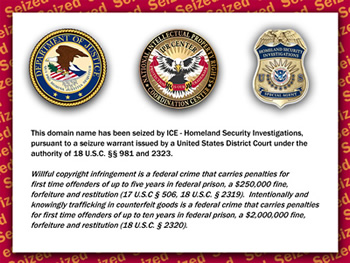The shutdown of online sports betting site bodog.com by U.S. law enforcement authorities last week certainly raised eyebrows throughout the web. Despite the site's domain being registered in Canada, it was seized by authorities who went to the .com domain's root operators, VeriSign.
Using a domain registrar in Canada should have been enough to prevent the U.S. any lawful access. That probably would have been the case if it weren't for VeriSign having the right to force changes on top of local domain registrars.
Mark Jeftovic summed up the concerns aired by many over the recent actions of the Federal agencies. "The ramifications of this are no less than chilling and every single organization branded or operating under .com, .net, .org, .biz etc needs to ask themselves about their vulnerability to the whims of US federal and state lawmakers (not exactly known their cluefulness nor even-handedness, especially with regard to matters of the internet)," said Mark Jeftovic wrote on the EasyDNS blog.
Even more alarming, the U.S. government responded to this news by saying they have done it hundreds of times previously. They didn't stop there though; a spokesperson left no doubt as to how the Federal agencies feel about seizing U.S. managed domains.
"They have the right to seize any .com, .net and .org domain as the companies with the contracts to administer them are located on American soil, and therefore fall under U.S. laws," according to Nicole Navas, a spokesperson for the U.S. Immigration and Customs Enforcement (ICE).
So it seems it doesn't matter where the server is located, or who you have registered the domain with - if its .com U.S. law enforcement have a right to seize it should it commit any offences under their law.
VeriSign has been caught up in this mess, tied between complying with legal requests in its headquartered state, against allowing the laws in the domain's registered home country to prevail.
"VeriSign responds to lawful court orders subject to its technical capabilities," the company said in a statement. "When law enforcement presents us with such lawful orders impacting domain names within our registries, we respond within our technical capabilities," they said in a statement to Wired.
The root operator refused to comment on how many times it had taken these actions previously, and insisted that all further enquiries be made to the appropriate seizing authorities.
